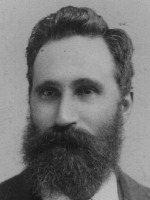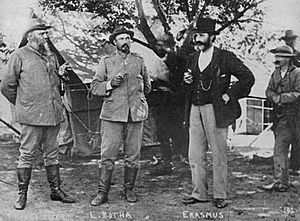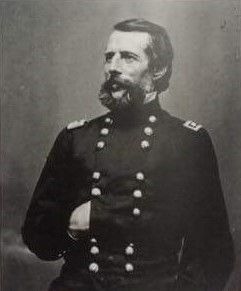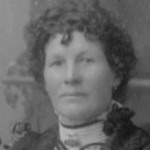Daniel Jacobus Elardus Erasmus facts for kids
Quick facts for kids
Daniel Jacobus Elardus Erasmus
|
|
|---|---|
 |
|
| Boer War General of the South African Republic | |
| Personal details | |
| Born | 4 March 1865 Doornkloof (later called Irene), Pretoria, South African Republic |
| Died | May 7, 1914 (aged 69) Grootfontein, Pretoria, South African Republic |
| Resting place | Pretoria, South African Republic |
| Nationality | Afrikaner |
| Spouses | Magdalena Margaretha Erasmus, Sibella ("Beppie") Margaretha Aletta Schabort |
| Children | 11, seven daughters and four sons |
| Profession | member of the Transvaal Volksraad, Boer general |
| Military service | |
| Allegiance | |
| Years of service | 1880–1902 |
| Battles/wars | First Boer War (1880-1881), Malaboch War (1894), Mpefu War (1898), Second Boer War (1899-1902) |

Daniel Jacobus Elardus Erasmus (born March 4, 1845 – died May 7, 1914) was an important Boer general. He was also known by his nickname, Maroela. He played a key role in the South African Republic (ZAR), especially during the Anglo Boer War (1899–1902).
Contents
Family Life and Early Years
Daniel Erasmus was born in Pretoria, which was then part of the South African Republic. He was the third child and first son of Daniel Elardus Erasmus and Susara Margaretha Jacobs(z). His father was also known as Daantjie Doornkloof.
Daniel had two older sisters and two younger brothers. One of his brothers, Stephanus Petrus Erasmus, also became a Commander.
In 1866, Daniel married Magdalena Margaretha Erasmus. They had three children together. After Magdalena passed away, Daniel married Sibella ("Beppie") Margaretha Aletta Schabort in 1876. With Sibella, he had eight more children, bringing his total to eleven children.
Daniel Erasmus's Career
Daniel Erasmus was a respected leader and soldier. He served in the military and also in the government of the South African Republic.
First Boer War and Beyond (1880-1898)
Daniel Erasmus took part in the First Boer War (1880-1881). He fought in the Battle of Bronkhorstspruit in December 1880. He also helped surround the British soldiers in Pretoria.
After the South African Republic became independent again, Daniel Erasmus joined the Volksraad. This was like the parliament or main government body. He also became the Commander of the Pretoria Commando. A commando was a group of armed citizens who fought together.
As Commander, he led his commando in several conflicts. These included the Malaboch War in 1894 and a campaign against Chief M'pefu of the Venda people in 1898.
Role in the Second Boer War (1899-1902)
The Second Boer War began in 1899. Daniel Erasmus was chosen as Assistent Kommandant Generaal. This meant he was the second-in-command to the main leader, Piet Joubert.
General Erasmus led his Pretoria Commando in many battles against the British. Some of these important battles were:
- The Battle of Talana Hill (October 20, 1899)
- The Battle of Rietfontein (October 24, 1899)
- The Siege of Ladysmith
Later in the war, General Erasmus was put in charge of a military court. This court handled military matters in several districts. Even after the British took over the capital cities of Bloemfontein and Pretoria, Erasmus continued to fight.
However, on January 3, 1902, he was captured by British troops near Amsterdam. He was sent to a prisoner of war camp on Saint Helena island. He stayed there for five months. He was released after the peace agreement, known as the Treaty of Vereeniging, was signed on May 31, 1902.



